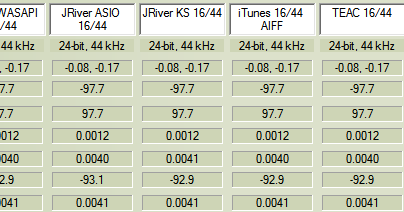I just bought Perfectunes last night after a year using DBpoweramp and I had a few questions and a suggestion.
The album art search brought up 260 without art, many were just single tracks which appear to be albums where
track 1 recorded with no metadata after ripping with WMP. Since the list is large it would be handy to have a print
list feature so that I can take care of those at a later time with DBpa without having to do a new album art search.
Also is there a way to contribute album art to your database? I have CD's for my entire library so is there an option
to upload CD art I scan for all of the titles that Perfectunes reports no art found? And there are quite a few.
I need to get all the track metadata fixed for a library conversion to FLAC. I ripped everything as WAV's because
I started long ago and they sounded better than anything else. I still do out of habit. Plus I tried FLAC several
times and decided that despite the metadata and space advantages, on my revealing system WAV still sounded better.
I plan to keep my WAVs as a backup and try FLAC again. Any conversion settings suggestions would be welcome and
I can ask this on the DBpa forum if that is more appropriate.
Thanks,
Lance
The album art search brought up 260 without art, many were just single tracks which appear to be albums where
track 1 recorded with no metadata after ripping with WMP. Since the list is large it would be handy to have a print
list feature so that I can take care of those at a later time with DBpa without having to do a new album art search.
Also is there a way to contribute album art to your database? I have CD's for my entire library so is there an option
to upload CD art I scan for all of the titles that Perfectunes reports no art found? And there are quite a few.
I need to get all the track metadata fixed for a library conversion to FLAC. I ripped everything as WAV's because
I started long ago and they sounded better than anything else. I still do out of habit. Plus I tried FLAC several
times and decided that despite the metadata and space advantages, on my revealing system WAV still sounded better.
I plan to keep my WAVs as a backup and try FLAC again. Any conversion settings suggestions would be welcome and
I can ask this on the DBpa forum if that is more appropriate.
Thanks,
Lance





Comment